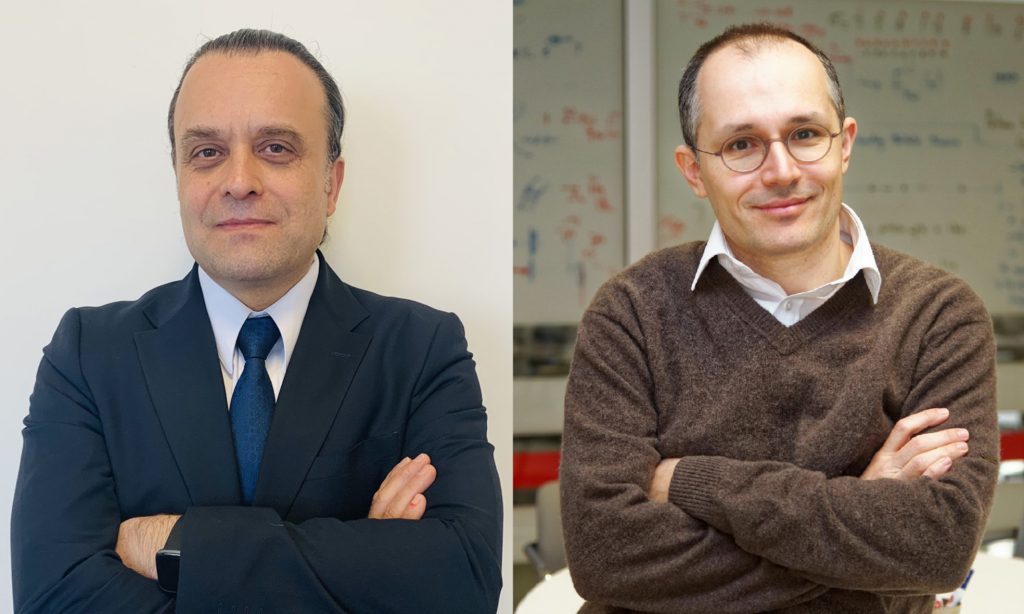Prof. Tolga Mete Duman of the Department of Electrical and Electronics Engineering and Assoc. Prof. Ömer İlday of the Departments of Electrical and Electronics Engineering and Physics, the Neuroscience Program and UNAM have had their projects selected for funding under the EU’s Horizon Europe research and innovation funding program, after submitting proposals in response to the European Research Council (ERC) 2021 advanced grant call. The total budget for the two projects will be nearly 5 million euros.

Tolga Duman, Ömer İlday
Prof. Duman will be using his five-year funding for a project he has named “TRANCIDS: Transmission Over Channels With Insertions and Deletions.” The project will take on the challenge of addressing the effects of insertions and deletions caused by synchronization errors over various communication channels by determining the theoretical limits of transmission and designing practical channel coding solutions that approach those limits. The project builds upon Prof. Duman’s experience in physical layer communications, information theory and channel coding/modulation – specifically, his previous work on basic insertion and deletion channels. The findings of the project are expected to have a significant impact on various emerging applications, such as DNA storage and beyond-5G wireless communications.
Dr. İlday’s project, titled “UNILASE: Second Modelocking for a Universal Material-Processing Laser,” aims to create a laser unlike others to date and to generate a crystal of light – a perfectly periodic array of ultrafast pulses that are self-assembled and held together by their mutual interactions. These crystals of light will exploit the ablation-cooled regime for ultra-efficient cutting of any material, also invented by Dr. İlday, and may, one day, make possible painless laser surgery and dentistry. This new laser concept was born out of an analogy between laser physics and self-organization, which Dr. İlday developed in two previous ERC projects. Moreover, the physics of the proposed laser is analogous, in name and concept, to second quantization, which underlies modern theoretical physics. By exploring the new conceptual connections, he aims to advance the fundamental understanding of complex systems, with implications that may reach well beyond laser physics.